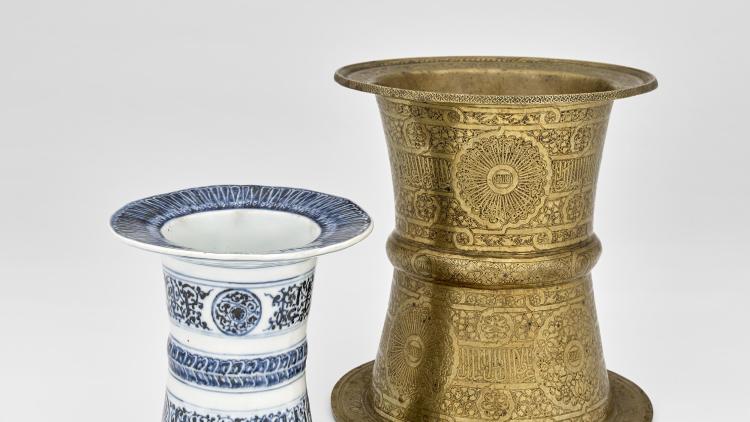MSc Global Public Policy (Online)


Key information
- Duration
- 2-years (Max. 3-years)
- Start of programme
- April / October
- Attendance mode
- Online learning (part-time)
- Location
- Online
- Fees
-
MA/MSc: £12,000
PGDip/PGCert: available as exit awards. - Entry requirements
-
A minimum lower second class honours degree (or equivalent). We welcome applications from academically strong individuals from a wide variety of fields and backgrounds
Course overview
The MSc in Global Public Policy provides you with a detailed and systematic understanding of a range of explanations for change and continuity in public policymaking in an interdisciplinary, global context.
Merging the study of public policy theory, global governance, global advocacy, international relations, political economy and diplomacy to interrogate policy processes beyond the nation state.
This MSc programme puts at its heart the policy challenges of cross-cutting transnational issues in gender, climate change, resource geopolitics, nuclear proliferation, security and terrorism, sport, trade and economic governance. Students will be trained to critically evaluate and develop solutions for policy issues of global resonance that lay at the intersection of public, private and non-profit sectors.
Through its core modules, the Global Public Policy programme covers key concepts and theories that enable critical analysis of a given policy space and the complex and fractious processes by which policy is formulated, adopted and implemented at multiple levels of political authority. Students will learn to be cognisant of the impact of relations of power, including those between the global North and South, and to question the assumptions inherent to conventional approaches to policy analysis and management.
Structure
Students will study one core modules and a range of elective modules on offer each session. There are also four research mini modules.
- 1x core modules
- 3x elective modules
- 4x research mini modules
- 1x dissertation
Students are required to rank three elective modules in preferred order from the below sample list for each study session following their core module. All modules are subject to availability and this list is not exhaustive from session to session.
Modules
| Modules | |
|---|---|
| Global Public Policy | Core |
| Afghanistan: Strategic and Geopolitical Perspectives | Elective |
| America and the World: US Foreign Policy | Elective |
| Digital Diplomacy | Elective |
| Economics, Politics and Society in Africa | Elective |
| Economics, Politics and Society in MENA | Elective |
| Economics, Politics and Society in South Asia | Elective |
| Finance Sustainabilty and Climate Change | Elective |
| Foundations of International Law | Elective |
| Gender, Conflict and the Middle East | Elective |
| Global Citizenship and Advocacy | Elective |
| Global Challenges: Science Diplomacy | Elective |
| Global Energy and Climate Policy | Elective |
| Global International Organisation: United Nations in the World | Elective |
| Global Media | Elective |
| India's Foreign and Security Policy | Elective |
| International Economics | Elective |
| International Security | Elective |
| Multinational Enterprises in a Globalising World | Elective |
| Muslim Minorities and the State: Historical and Contemporary Perspectives | Elective |
| Muslim Minorities in a Global Context | Elective |
| Pakistan: Religion, Politics and Security | Elective |
| Political Economy of Violence, Conflict and Development | Elective |
| Political History, Culture and Diplomacy in Iran | Elective |
| Sports and Diplomacy | Elective |
| Strategic Studies | Elective |
| Trade Diplomacy | Elective |
Important notice
The information on the programme page reflects the intended programme structure against the given academic session. If you are a current student you can find structure information on the previous year link at the top of the page or through your Department. Please read the important notice regarding changes to programmes and modules.
Teaching and learning
This programme is delivered 100% online through our Virtual Learning Environment (VLE).
Virtual Learning Environment (VLE)
In the VLE you will have access to learning materials and course resources anytime so you can fit your studies around your existing commitments. For each module, students will be provided with access, through the SOAS Library, to all necessary materials from a range of appropriate sources.
A key component of the student experience will be peer to peer learning, with students enrolled in discussion forums.
Study timetable
In addition to a dedicated Associate Tutor, a study timetable is provided for each module and for the overall programme to help you to organise your time.
The programme is broken down into two study sessions per year. Each subject module lasts 16 weeks, followed by a research mini module lasting 8 weeks.
Sample study timetable
| Activity | Duration |
|---|---|
| Substantive module | 16 weeks |
| Reading weeks | 2 weeks |
| Research mini module | 8 weeks |
| Reading weeks | 2 weeks |
Assessment
Each module is assessed by five written online assessments (‘e-tivities’*) comprising of 30%, the remaining 70% is formed of a 5,000 word essay.The e-tivities provide formative and summative feedback to students as a means of monitoring their progress and encouraging areas in which they can improve.
* An 'e-tivity' is a framework for online, active and interactive learning following a format that states clearly to the students its 'Purpose'; the 'Task' at hand; the contribution or 'Response' type; and the 'Outcome' (Salmon, G. (2002) E-tivities: The Key to Active Online Learning, New York and London: Routledge Falmer.)
Research training and dissertation
Research training is a key feature of this programme, the dissertation module is presented in four development parts, which will follow each of your module sessions. Research modules one and three are formative modules only, and are not assessed.
The dissertation is assessed by the submission of a written dissertation of no more than 15,000 words, excluding the bibliography and appendices, which will account for 85% of the mark awarded for the module (research module four). The remaining 15% of the module mark will be based on the mark obtained for a 1,500 word research proposal (research module two).
The research proposal is compulsory for students going on to do a PGDip or MA; MA students must submit a dissertation at the end of research module four.
Fees and funding
| MA/MSc | PGDip* | PGCert* |
|---|---|---|
| £12,000 | See below | See below |
* Only applicable to Global Diplomacy: South Asia and Global Diplomacy: Middle East & North Africa .
PG Dip and PG Cert are available as exit awards and interested students should be in touch directly with the course team at glodipadmin@soas.ac.uk
Note this is a new fee structure, students will continue their programme on the same fee structure throughout.
- See online learning fees for further information.
Pay as you learn
Our online learning programmes can be paid in full at the time of enrolment or on a pay as you learn basis. Pay as you learn means you pay for modules prior to enrolment.
Postgraduate loans
If you have been a resident in England for 3 years you may be eligible. For more information, see please fees and finance.
Application
To make an application, or to find out more about our admissions procedure, please visit cefims.ac.uk and how to apply (ODL)
Employment
Students from SOAS’s Centre for International Studies and Diplomacy (CISD) develop an in-depth understanding of international affairs, contemporary diplomatic practice and policy-makers. Graduates leave with a portfolio of transferable skills such as critical analysis, problem solving, negotiation and communication, all of which are valued by employers across a number of sectors.
Recent CISD graduates have been hired by:
- Department for Business, Energy and Industrial Strategy
- Ernst & Young
- European Centre for Democracy and Human Rights
- Government of India
- International Rescue Committee
- Medical Aid for Palestinians
- NHS
- The Commonwealth
- UK National Commission for UNESCO
- UNHCR
- United Nations
- World Food Programme
Find out about our Careers Service.







